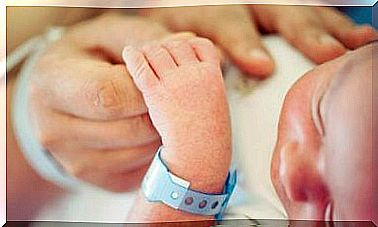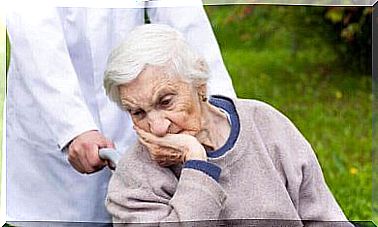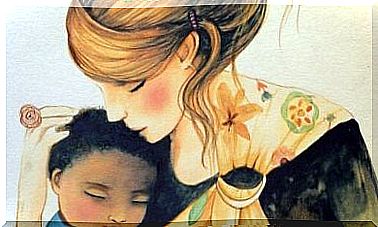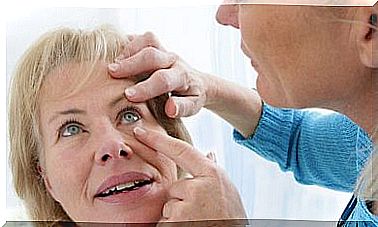How To React When Children Bite?
It is not pleasant to see or learn from another person that your child has bitten another child or that he has been bitten himself. Children often bite because they don’t know how to deal with the negative emotions that affect them. Find out more about this topic in this article.
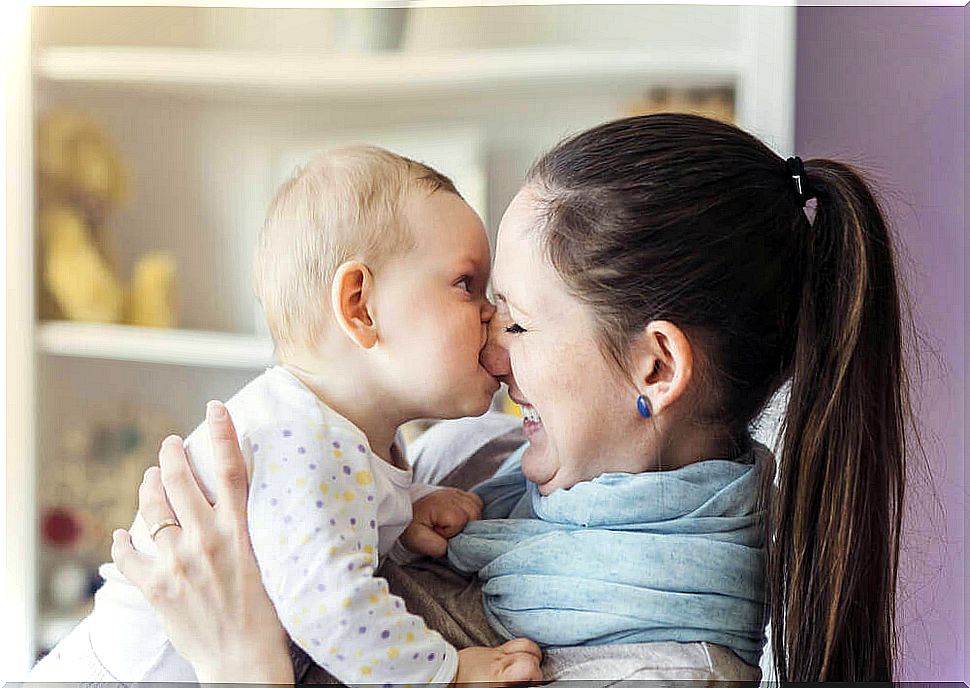
Children sometimes bite from around 2 to 3 years old. They usually do this when they start to experience new emotions that they didn’t have before, such as anger, frustration, or jealousy. Since they don’t know how to channel what they are feeling into positive behavior, they may try to bite others.
Although this is a passing habit that is not too serious of a problem, it is nevertheless very common among little ones. Indeed, children do not always know how to express what they are feeling and they sometimes do so by biting others.
Why do children sometimes bite?
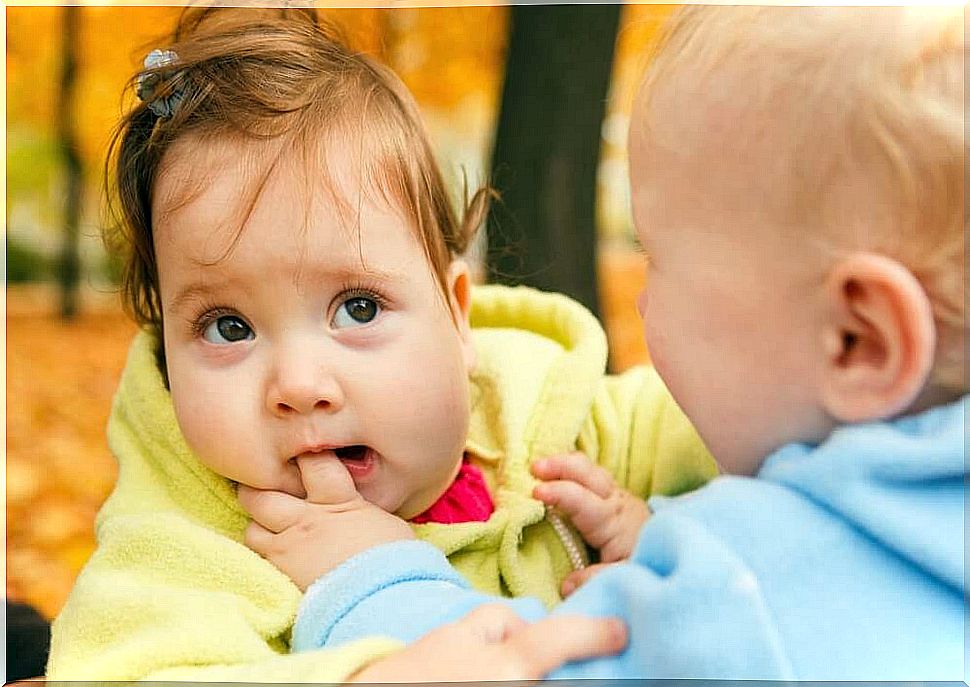
Understanding what lies behind the act of biting is the first step in getting children to stop having this aggressive behavior. In general, the biting action occurs when children are under the supervision or care of strangers and not when they are with their parents.
But, of course, it also happens that children bite their parents or siblings. Biting expresses a reaction to something that we have to learn to find out. Children can bite as a result of situations that occur at home that trigger these reactions, such as:
- The arrival of a new baby that can cause jealousy
- The death of a close relative or relative
- Divorce or separation of parents
- A move, the child is no longer in the house he knows, he has changed environment and has lost his bearings
- The child witnesses acts of violence within the family
- Children bite because they feel frustration, loneliness and helplessness
- Children are very upset or over-stimulated
- There may also be a need for affection or autonomy
- By imitation, that is, children bite because they have been bitten
- Sometimes children also bite to express their love
- Finally, children can sometimes bite when they feel anger or fear.
What to do when children bite?
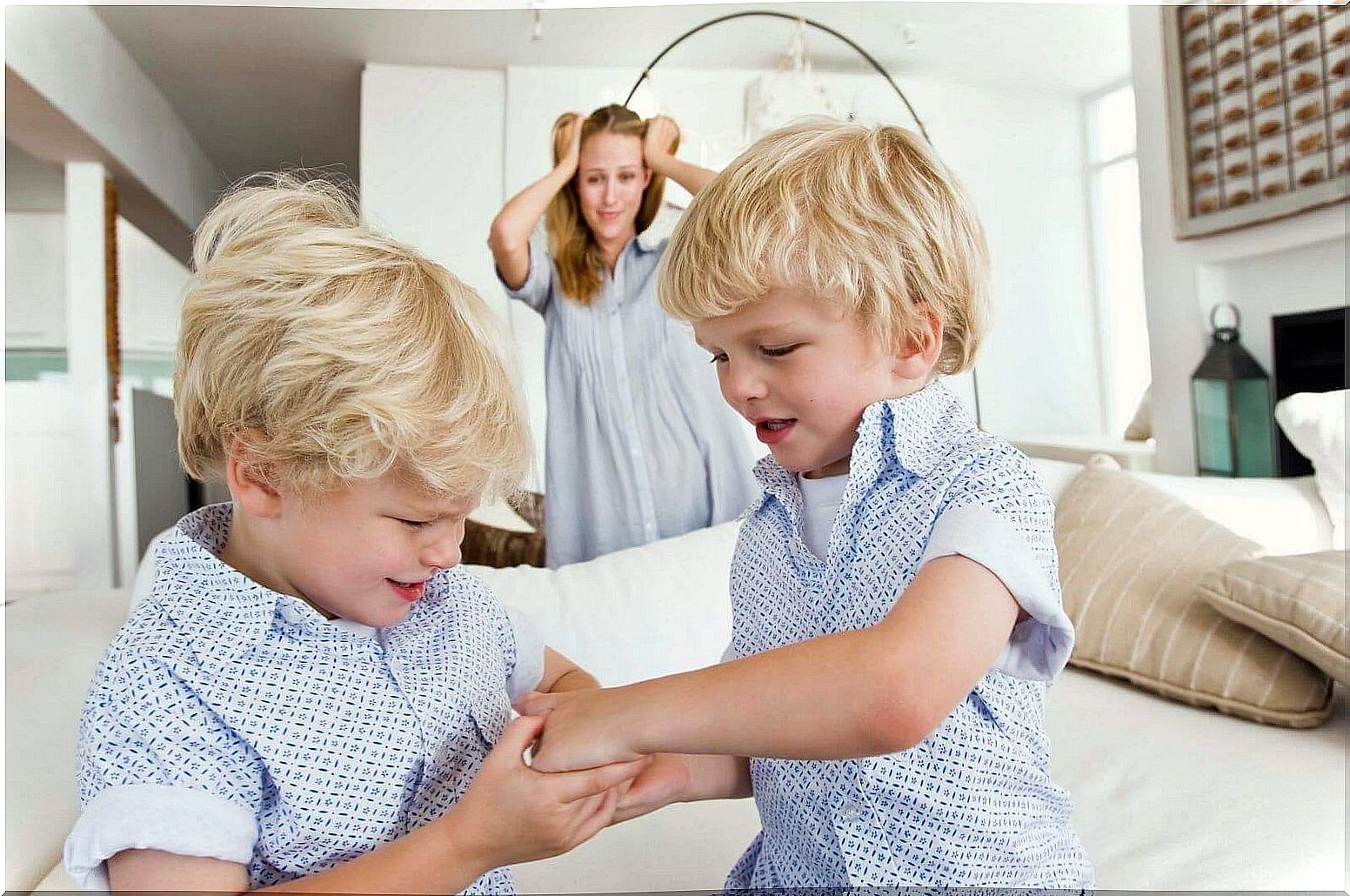
Just as it’s common for children to bite at a young age, it’s also common for them to stop biting as they grow older. However, knowing that this is common does not reassure parents of children who have this behavior, let alone parents of bitten children.
But when you see your child biting or the teacher informs you that your child has been bitten, we recommend that you follow the strategies that we will explain below. These tips will be a good way to help your child get over this stage as quickly as possible.
Take care of the bitten child without ignoring the one who bites him
Calmly and gently check the bitten child, but don’t ignore the biting child. You should attend to the child who has been bitten first and make sure that he or she does not need medical attention. This way you don’t focus on the biting child’s behavior so that they realize that their action isn’t monopolizing your attention.
You need to involve the biting child in your care and attention to the bitten child, so that they can perceive that their action has caused harm and pain. But do not treat the abuser coldly, distant treatment will not help the child who will withdraw and will not want to communicate when you ask them for explanations of the reasons for their behavior.
Stay calm and do not especially punish the child
While it is easy to get carried away with disgust at seeing your child behave as aggressively as biting, most of all you need to learn to stay calm. A violent reaction, reprimand or excessive punishment will only fuel the feelings of anger and frustration that often lead to this reaction in the child.
Very calmly and gently, you should give a simple explanation to the child, so that he understands that biting hurts, that it is a behavior that he should not have, no matter how angry he is.
As a parent, if you are affected by these situations, you should stay calm and most importantly, not act impulsively. It is best to deal with this type of problem with good communication and favorable strategies for both the child and the parents.
Talk to your child about how to act when they are angry
Teach your child to ask a nearby adult for help when they get angry. Since bites are more common in daycares and preschools, teach your child that he needs to learn to express what he doesn’t like and to tell the teacher that he is angry.
One of the bases of the closeness that we can achieve with our children to support and advise them is effective and loving communication, in addition to the time we give them. For this, it is essential to learn to communicate with our children when they are small.
You should therefore teach him to talk and control his emotions before attacking the child who made him angry. If another child took the toy he had, for example, he needs to learn to tell the other child that he doesn’t like what he did. Then he should immediately explain to the teacher what happened so that the teacher is the only one to resolve the situation.
Of course, it is very important that you also tell the teacher or the caregiver about these possibilities. You also need to know how these people manage to deal with aggressive situations that children may produce. The explanation for aggressive behavior in children is complex. It cannot be sought only in specific cause and effect relationships or in individual or family factors.
Use positive reinforcements
It is usually much more effective to reinforce positive behavior than to emphasize aggressive behavior. After 3 years, children enjoy the company of other children. Whenever your child plays quietly with his friends, you should congratulate him on his good behavior and say, for example: “You played well today with your friend! I’m proud of you, that’s great. “
At the same time, you need to talk to your child and explain to him what it means to bite. When you eat, you can explain to him what it is like to bite bread or fruit (to enjoy the flavor, to feed us), and why it is not done with friends.
Never bite your child
Some people think that by biting in turn, the child can understand that biting hurts. This is not, however, an attitude to be reproduced. The child who is bitten by his parents will understand that it is permissible to do so to release anger or disgust.
The example we give children is stronger than the arguments we can teach them. Above all, never bite your child, not even while playing with him, or to make him laugh or play a joke.
As children learn to behave and control themselves, we need to be aware of the factors that trigger biting. In this way, it will be possible to visualize which factors trigger the moment when children exercise these retaliations and prevent them from happening again.
The moment you see that your child is about to bite, however, you need to be firm. Without losing your composure, remove him from the situation and explain to him why he shouldn’t behave like this. You can calmly explain to him this way: “It’s not good to bite, I’m not going to let you bite your friend.”
In conclusion
Finally, but in reality this is the most important thing that we often forget: also remind and express to your child that you love them.
The love you have for your child will help him express his reasons for biting and not controlling himself. You have to make him understand that you disapprove of this behavior, but that you still have not stopped loving him.
The family is, during childhood, the context which has the most influence on the child. Interactions between parents and children shape aggressive behavior, especially when it comes to dealing with the consequences of such behavior.
There are no perfect parents. But taking into account certain flaws, being critical of yourself and providing solutions will be an important and very rewarding step. Educating the little ones is not easy. This is why it is not uncommon to fall into the trap of certain mistakes that parents make when their children disobey.
One of the mistakes parents make is forgetting that they are role models for their children. In general, everything they do will be repeated by the little ones. In this article, learn about parenting mistakes to avoid when children disobey.
